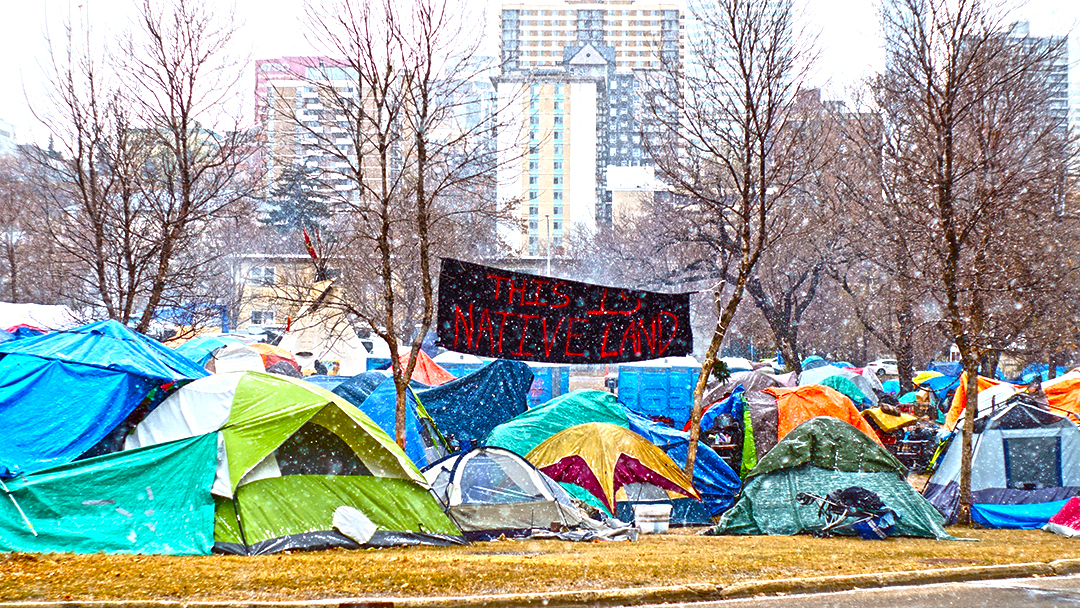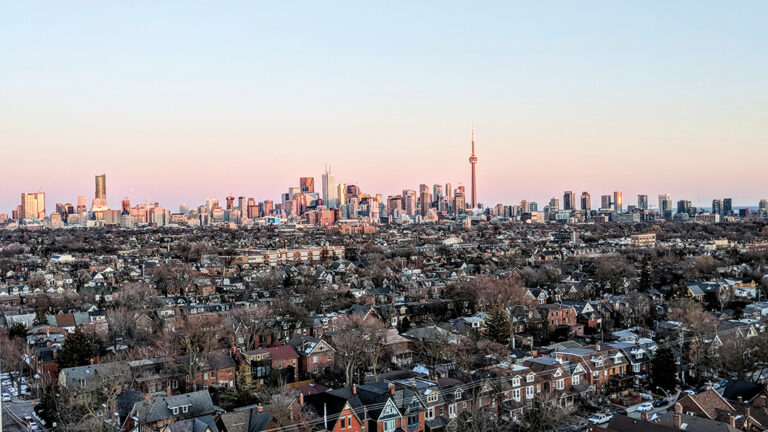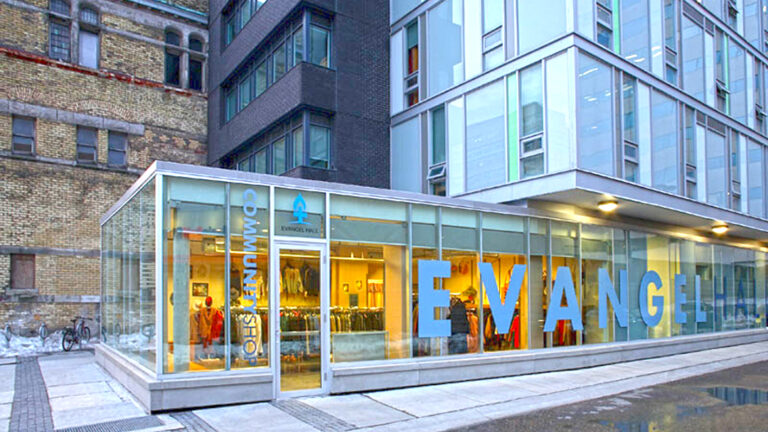A new report examining how 12 major Canadian cities dealt with dual covid/homeless crisis concludes there has been a mix of positive steps forward and blunders in dealing with the unsheltered communities. To solidify the gains, the author argues, the federal government must step up with more permanent funding to maintain and improve on the changes.
“Homelessness officials across Canada have worked hard to improve physical distancing during the pandemic. Permanent increases in federal funding would help them both maintain this ‘new normal’ and find more permanent, affordable housing for persons experiencing homelessness.”
That’s the conclusion of a new study commissioned by Calgary Homeless Foundation that looked at the homeless crisis amid a pandemic. Researcher Nick Falvo surveyed 12 Canadian urban centres, from St. Johns N.L. to Vancouver, and most major cities in between.
Although Falvo reports that some government actions related to the homeless population may have improved the lot of many of them since the pandemic was declared, he worries that these support systems may fade away along with the virus.
“There has been no enhancement to permanent federal homelessness funding announced since the start of the pandemic,” Falvo wrote. “An enhancement to permanent funding could: support local officials in maintaining the improved physical distancing; assist in transitioning more people from both emergency shelters and outdoor encampments into permanent housing; and help pay for increased cleaning costs and staffing needs associated with the ‘new normal’ discussed above.”
Among the report’s positive findings, “Networks of cooperation have generally improved during this crisis; this is especially true with health officials. It has been common, however, for local homelessness officials to express frustration with officials in nearby correctional facilities for discharging inmates without housing plans and without reaching out to homelessness officials to coordinate a transition into emergency shelter.
“Across Canada, a surprisingly large number of newly-created spaces for the homeless are staying open or re-locating—put differently, the new physical distancing arrangements put in place during the pandemic appear to be having a remarkable amount of staying power. However, the state of this ‘new normal’ will vary by city.”
Other cities examined by Falco include Toronto, Montreal, Calgary, Edmonton, Ottawa, Winnipeg, Quebec City, Hamilton, Regina, and Saskatoon.
The major recommendations of the report include: “A collective commitment to a new normal in Canada’s homelessness sectors,” greater cooperation between levels of government and “enhanced support for the Canada Housing Benefit.”
To download a copy of the full 54-page report, visit the Calgary Housing Foundation website.



